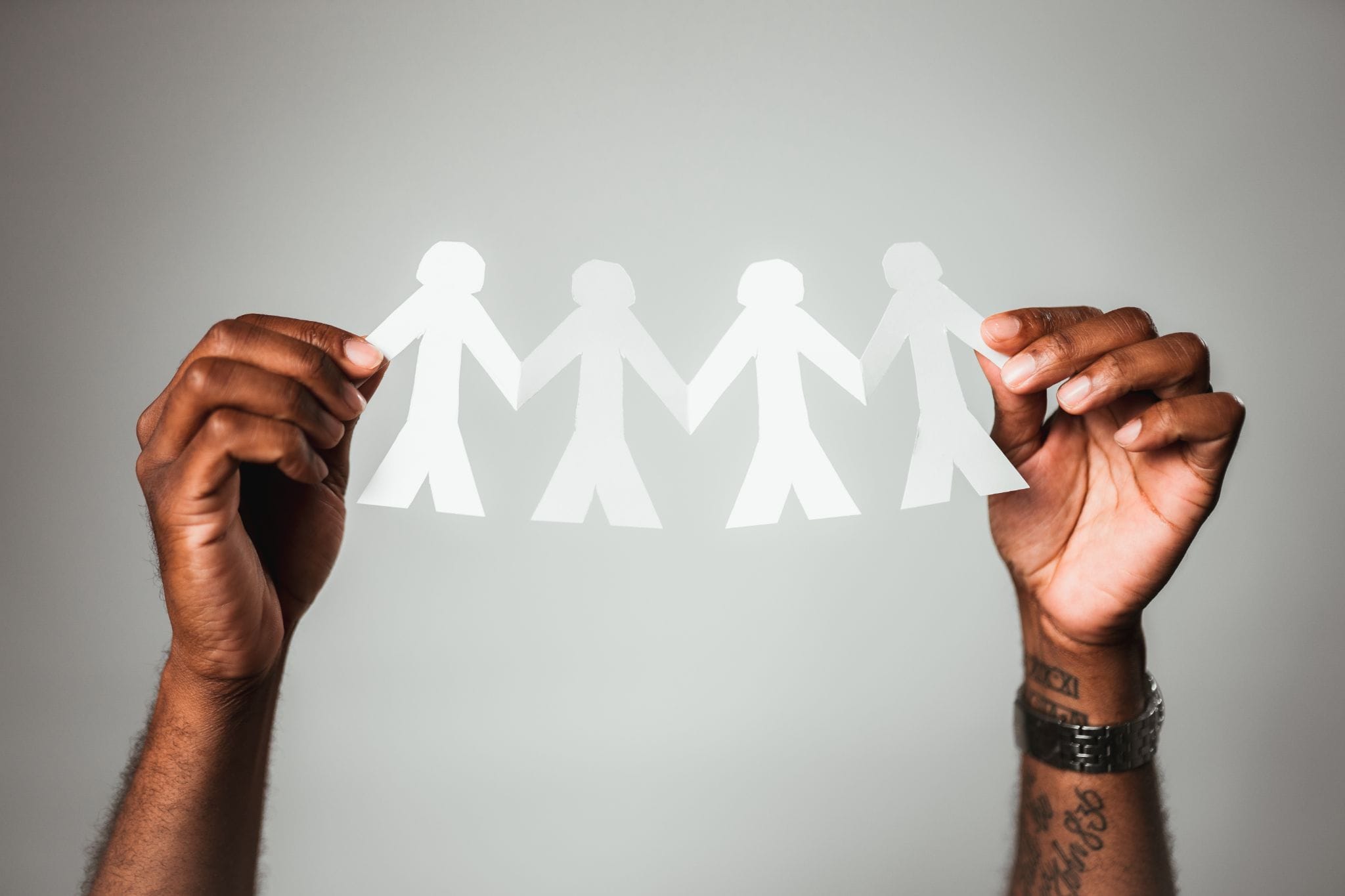
Following on from posts from women in the community discussing recent events (like this and this)[1] I wanted to provide some specific suggestions for people who want to do something about sexual misconduct and harassment in EA but don’t know where to start. If you find the word useful, you could consider this post a guide to being an “ally”
I was inspired to write this after some of my male friends asked what they could do to help and/or were pretty surprised by how well the things they did went down. But it’s hopefully useful advice for everyone, myself included.
I’ve written this mostly with sexual harassment in mind. However, some of the sections are applicable in thinking about sexual assault, violence or rape.
Caveats:
- The post is not attempting to persuade anyone who isn’t already convinced that it’s worth taking action - I’ll leave that to other posts
- It’s just my take on what might be helpful to do
- Navigating this stuff is tricky - what makes most sense for you to do is going to be very context dependent
- My thoughts are fairly focused on the culture and norms I’m most familiar with (I’m a woman of colour from the UK)
Summary
Remember we’re all within the system - One useful frame can be thinking about what actions comprise the “paths of least resistance” in social situations that lead to harm - and trying to not take those ourselves as a way of trying to change them
Act with compassion - In general act as if people in the discussion have a decent chance of having been personally affected. And be extra compassionate as a result.
- Learn about the issue - You can still be really helpful even if you don’t feel like a world expert on the topic. That said, do carry on learning more, including from beyond the EA community, especially before suggesting improvements. This can be either by yourself (there’s some suggestions at the end) or with others (e.g. start a discussion group)
- Listen to community members empathetically - Be an empathetic listener to people in discussions about sexual misconduct. Both reactively when they raise things with you and proactively by reaching out to people who might feel affected. Consider pausing discussing your opinions and solutions with someone who is upset at least until you’ve done the listening bit first.
- Support people who tell you about their experience - Listen to and carry on being supportive to someone who shares a story with you about an experience they have had. Respect their preferences on confidentiality and autonomy over what to do next. And also look after yourself.
- Reflect on your own behaviour - Spend a little time reflecting on your own past behaviour and if there is anything you want to do about past actions or change for the future. Check in with someone else if so. This is tough but courageous to do.
- Interject when you see harmful behaviour - Whether it's happening online or in person, interject as an active bystander. Challenge the behaviour and/or look out for the person affected
- Take action about people who have harmed others - Take responsibility for doing something about people you interact with who have harmed others, but handle this with care. Consult with friends / experts to work out what to do. Feel free to maintain your own distance even if behaviour isn’t bad enough to face professional repercussions
- Participate in the discussion - When there is community wide discussion about issues like sexual misconduct participate by signal boosting those affected and contributing your own takes
- Contribute to or start community wide initiatives - Contribute to existing projects in the EA space, take actions within your local EA group or workplace and consider starting up a new project that could make progress (ideas in the section below)
- Take additional personal actions - Take your own personal pledge to take action on this issue, donate, volunteer, or raise awareness
Contacts if you’re affected by this
If you are personally affected by any of the things discussed in this post, you may want to reach out to these helplines or a local one where you are:
In the US, RAINN has a free, national sexual assault hotline (800.656.HOPE) and an online chat option.
In the UK, the NHS signposts a numbers of options including the free hotline from Rape Crisis England & Wales (0808 500 2222) and their online chat option.
In the EA community, you can contact CEA’s Community Health team through their form which can be anonymous if you prefer.
You may also want to contact law enforcement. There's some guidance on this here for the US from RAIN, and here in the UK from Rights of Women
Preface 1 - Monopoly and the system
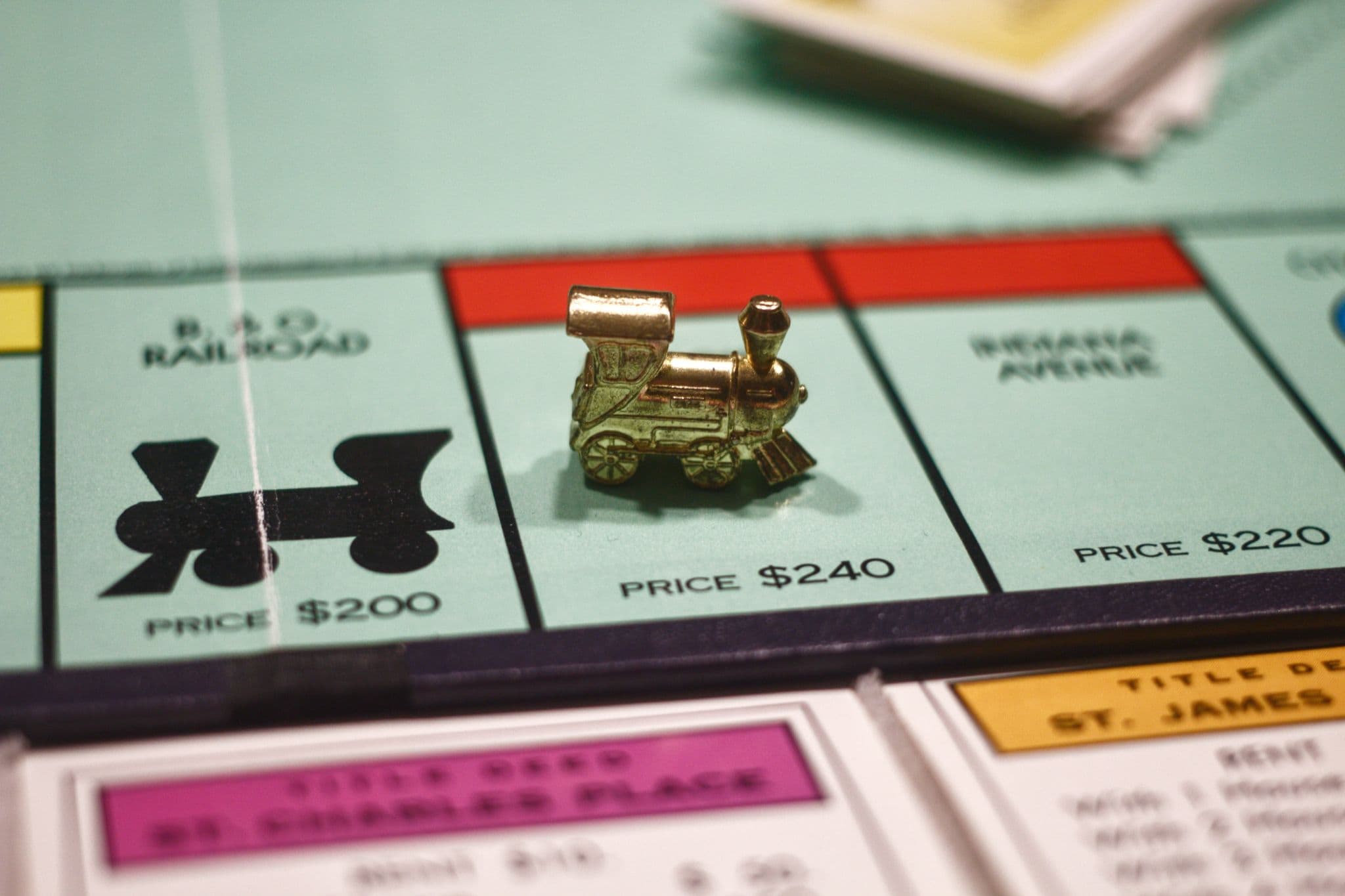
First of all I want to set out an optional intro about Monopoly to illustrate how social systems work.
The sociologist, Allan G Johnston noticed that when playing the board game, even with his children, his behaviour was greedy and mercenary (e.g. buying up lots of properties and charging his children rent even when it would leave them with no money). But he didn’t behave like that when he wasn’t playing monopoly so the behaviour clearly wasn’t a reflection of his character.
When playing, it was in fact open to him to take any number of other actions - he could have for example decided to not charge someone when they landed on a property he owned if he liked them and only charged people he didn’t like. He could have taken money from the bank or given some to another player etc. But he wouldn’t do that. Why? Because everyone else would object he wasn’t playing fair or get angry or kick him out the game.
This is how Monopoly functions as a social system. There are values that define the point of the game and ‘paths of least resistance’ which are what you’re supposed to do if you want to feel that you belong. Players feel obliged to go by its rules and pursue the values it promotes.
Thinking about the real world - imagine a scenario where someone’s friend makes a sexist joke in a group conversation. Even if they feel uncomfortable, perhaps they risk being ostracised by everyone if they objected so instead they follow the path of least resistance and laugh along anyway.
If we buy this model of thinking about society, then some things to bear in mind when we’re thinking about sexual misconduct:
- It can be tempting to think that only “bad actors” do harmful things because of their own bad inclinations / character / ideas etc. But when thinking about harassment, it seems important to bear in mind how the system socialises people to think, feel and behave in certain ways. The system presents paths of least resistance that reinforce the way the system works.
- In wanting to change things, one thing we can all do is not take the “path of least resistance” ourselves. In doing so we contribute to generally shifting what the past of least resistance is in the game at large for all the other players. If we object to the sexist joke we make it less costly for the next person to do so the next time it happens etc.
Takeaways: One useful frame can be thinking about what actions are the “paths of least resistance” in social situations that lead to harm, and trying to not take those ourselves as a way of trying to change them
Preface 2 - Compassionate approach
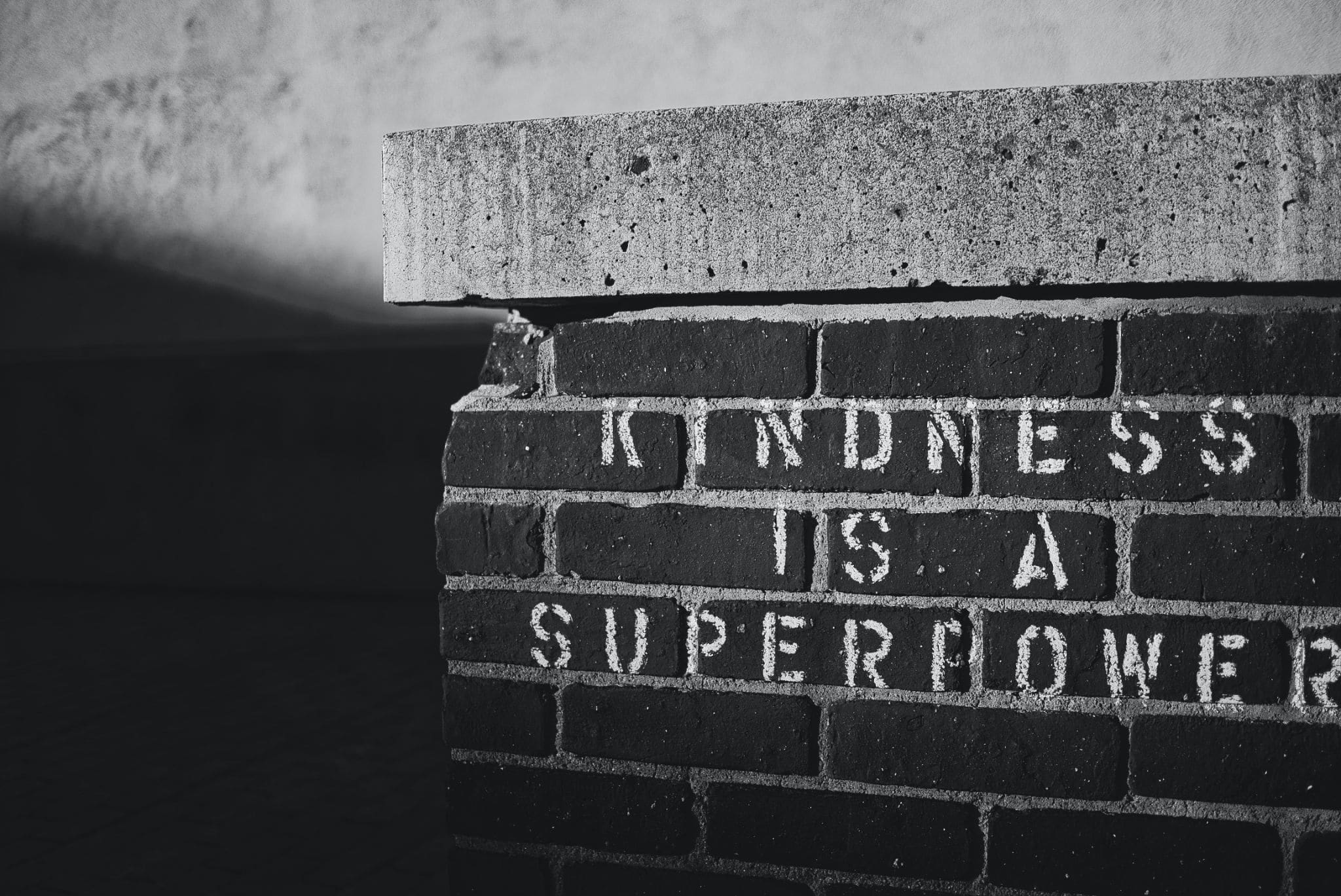
Whenever you’re engaging with this topic remember:
- Sexual harassment and assault are quite prevalent,[2] and
- This can be a deeply personal and emotionally charged topic
People have all kinds of responses based on their situation (e.g. fear of being treated unfairly, guilt about their own behaviour etc.).
In particular, people you talk to may likely have personally experienced harassment or assault or know someone who has. Discussion could bring to mind a painful experience in their past. Maybe this topic more so than others leaves them feeling deeply scared or angry or in tears. Anecdotally I think this is true of some of the EA women I know.
So as one thinks about all the other parts of this post, an underlying theme is to prioritise engaging with this issue compassionately.
Takeaways: In general act as if people in the discussion have a decent chance of having been personally affected. And be extra compassionate as a result.
1. Learn about the issue
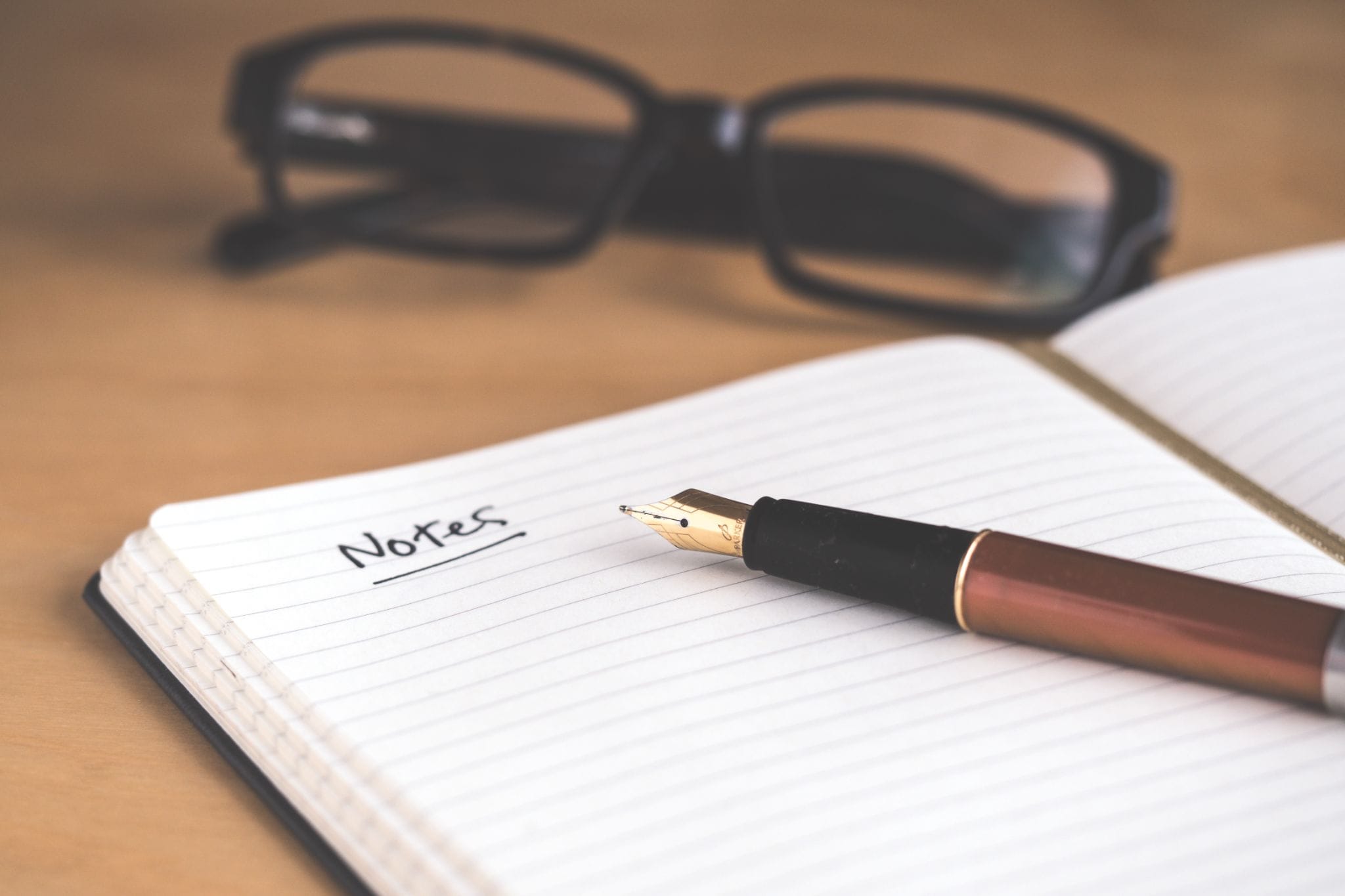
If you feel under-informed on issues around sexual misconduct, that’s okay! You can still be really helpful in listening to others and supporting good takes and I personally still really want you to do that.
But carrying on learning about the issue is really helpful - I’m certainly still doing that. And it makes particular sense if you want to get into suggesting improvements.
It’s extra good to:
- Take the initiative to do some of this yourself rather than expecting those most affected by the issue to expend the time, effort and emotional energy explaining how things are for them.
- Look beyond your immediate circle and the EA community. The wider world has thought about this much longer and harder than the EA community and we should expect there to be better takes out there!
Talking through things with other people can be particularly good for learning from their perspectives as well as for accountability in getting through a reading list.[3] EAs be loving a discussion group. For example, if you’re a man, you might find that setting up a regular discussion group with some other men is particularly useful as you work through your own confusions and learn in a non-judgmental space - this could be much better for you and others than having those discussions online on a public forum.
I’ve put a few (not comprehensive) resource suggestions at the end of this post.
Takeaways: You can still be really helpful even if you don’t feel like a world expert on the topic. That said, do carry on learning more, including beyond the EA community, especially before suggesting improvements. This can be either by yourself (there’s some suggestions at the end) or with others (e.g. start a discussion group)
2. Listen to community members empathetically
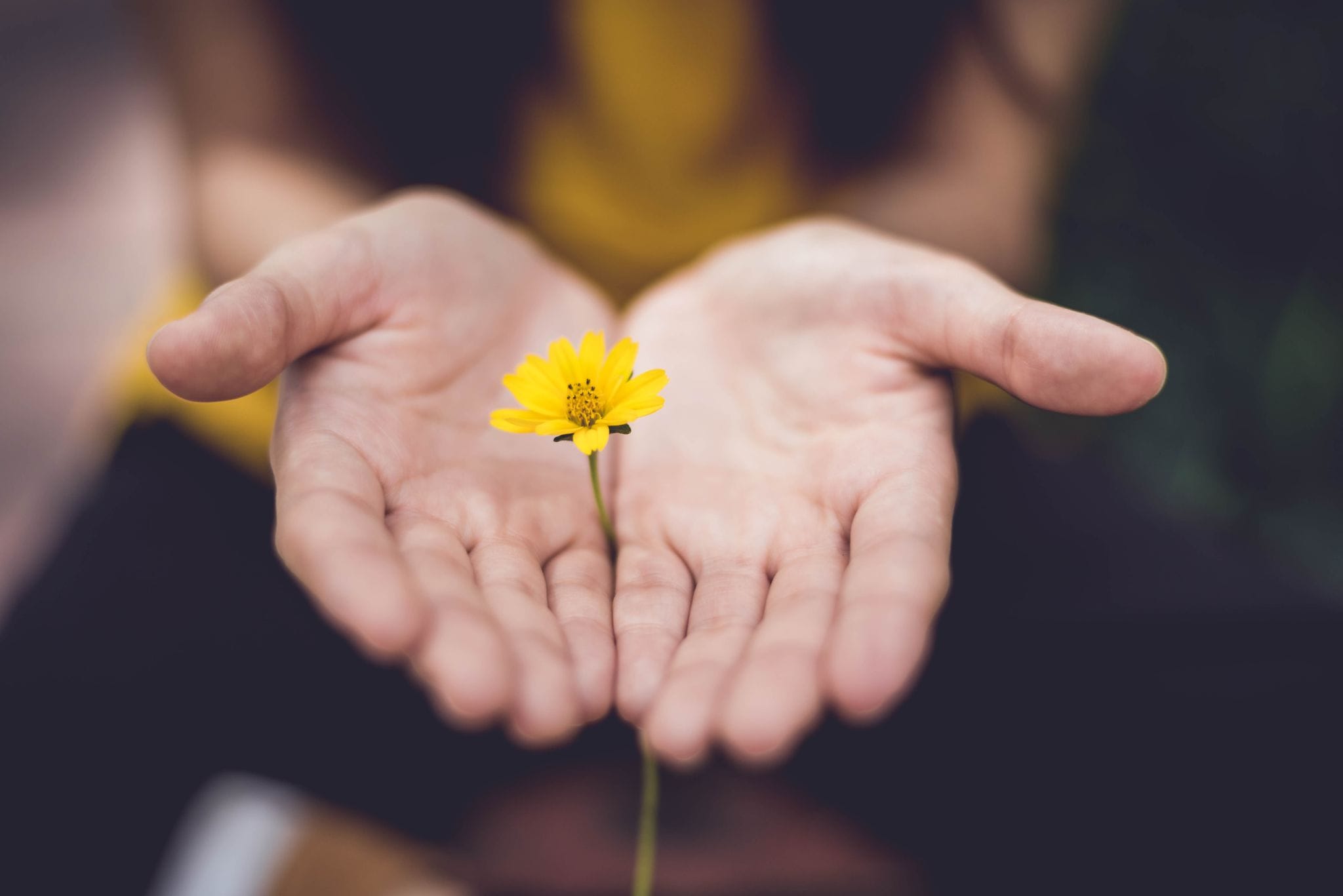
As noted above, people (especially women) may find this issue of sexual harassment and how the EA community is or has responded really emotional. If you feel able (especially if you feel personally less affected) it can be very valuable to offer an empathetic ear both reactively and proactively.
This is one concrete thing above all in this post that I feel anyone and everyone can do. You can be the empathetic friend - someone people trust and will go to when they need it.
1. Reactively - if you’re talking to someone and they’re sharing how they feeling about it, try empathetic listening
Empathetic listening (similar to what people call active listening) is a technique from non-violent communication (see this summary blog post or the full NVC book).
In brief, one statement of the principle is “don’t just do something, stand there”.
It is often the case that when people are telling you how they feel, what they really want is for you to listen, not give them advice, share your own stories, interrogate them or correct them. What does it look like to listen? Focus your attention on them, give them the time and space to express themselves fully, show that you’ve understood. The technique (especially suggested phrases) can seem a bit odd or clinical at first but I think it’s worth giving it a try.
The steps are:
- Reflect back what you heard - either in exactly their words or paraphrasing e.g. “Sounds like you’ve found the last few days really upsetting” or “Seems like you’re feeling really scared right now”
- Allow them to fully express themselves before switching to your questions or suggestions - staying in silence for a bit even is totally fine
One particularly tricky situation can be if someone has opinions about what should be done next that you disagree with. There is a time and a place for discussing the pros and cons of solutions. If someone seems to be feeling strongly (and as I said above you might want to lean more towards assuming that they are) then I think the empathetic listening step should come first. And maybe you don’t discuss the solutions part in that conversation or even with them at all if it doesn’t seem useful.
2. Proactively - reach out to people to offer support or check how they’re doing. But don’t offer unsolicited corrections or advice.
I would encourage you to reach out to people who might feel affected with a supportive message. That could be for example: if there is new upsetting community news and you suspect your friend might find it hard, or if you see someone online seem to be finding something tough, or there’s been news about a specific individual or location and you know someone who interacted with them. The message could be something like “I saw your comment, sorry this is such a rubbish situation. If you want to talk any time, I’d be happy to listen”
Speaking personally I have always found it touching and heartening to receive such messages even from strangers and I personally think people way under send messages like this. The benefit:effort ratio is really high!
By contrast I would pretty strongly caution against doing any unsolicited advising, correcting, or questioning especially if the person has said that they find the issue hard and even if your proposed message seems fairly innocuous to you. Remember the topic is just really fraught!
Takeaways: Be an empathetic listener to people in discussions about sexual misconduct. Both reactively when they raise things with you and proactively by reaching out to people who might feel affected. Consider pausing discussing your opinions and solutions with someone who is upset at least until you’ve done the listening bit first.
3. Support people who tell you about their experience

If you’re ever in the position where someone opens up to you about an experience of sexual assault, bear in mind telling you could be a really huge deal for them. It might be a lot for you to deal with too but you could be really helpful for them depending on how you handle it. It’s probably worth spending a little time reading up on good tips in case you’re ever in this situation.
RAINN suggests a four step approach that is fairly focused on the same empathetic listening describe previously as well as building trust:
T - thank them for telling you
A - ask what you can do to help
L - listen without judgment
K - keep supporting them after the initial conversation
The NHS has similar advice on this lower down on this page.
I think it's a good idea to check out the advice on those pages as there are some "don'ts" that are easy to do without realising (e.g. don't press for more details than they're comfortable sharing, don't ask them if they're sure it happened etc.)
I’d add: respect their preferences on confidentiality - don’t betray their trust by telling other people without their permission.[4]
Things you can do to carry on helping someone will vary by person but here are some ideas to consider:
- Keep regularly checking in with them - e.g. maybe occasional texts
- Do research for them about their options if they find it too hard to do themselves
- Help them make a plan for what they want to do next
- Go with them to meetings at work, with CEA community health, or to the police to discuss their case
- Help them write emails they want to send or practise what they want to say
- Talk to them after particularly tricky times and provide emotional support
- Carry on doing normal fun things together
- Encourage them to seek support and practice self-care
RAINN has some thoughts here about ongoing support and there are notes on what a “support team” can do here.
My personal take is that I don’t think you should never offer your opinion on what they should do to seek redress or what you think about the situation, especially if asked - the appropriateness of doing that is going to be extremely contingent on the situation. In general probably one should skew towards doing that a lot less than one would naturally want to. Their autonomy and sense of control over what to do next is very important, and this should be the focus of your response.
In general, do try and focus on the person’s feelings when you’re having conversations with them and try not to make it about your feelings.
This could be a really hard time for you, so look after yourself too. You can get support from your own network (even if you can’t open up about all the details). And if you need to take a step back because you aren’t able to be supportive that is okay - you might just want to think carefully about how to convey that message sensitively.
Takeaways: Listen to and carry on being supportive to someone who shares a story with you about an experience they had. Respect their preferences on confidentiality and autonomy over what to do next. And also look after yourself.
4. Reflect on your own behaviour

One of the toughest but most courageous things to do is to look back on one’s own behaviour critically. It is easy to dismiss sexual assault or violence as things that only “bad people” do, but you may wish to spend some time examining incidents or relationships in the past where you think you may have harmed someone.[5]
This is a challenging thing to do. Some thoughts that may help if you are grappling with this: In my view, we are all much more than our worst mistakes. And remember the lessons from the monopoly preface - we do not have to be at our core a “bad person” to have acted in a way that harms others, even severely. But we do have the opportunity to do better in the future or even atone for past mistakes if we gain greater self-knowledge about them.[6] And perhaps we have a responsibility to do so too.
I don’t have many resources to share with experiences from the perspective of someone grappling with their past behaviour in this way, but here is a TED talk and extract from the book, which is called South of Forgiveness, that does cover this a little.
If you feel uncertain about some of your past or present actions here are some things you could do:
- Consider this EA forum post on power dynamics to see if it applies
- Ask a trusted friend or mentor for their take. People are probably more willing to talk or help than you think
- Talk to CEA community health (if relevant)
I think it will very occasionally be appropriate to check in with the person you interacted with themselves. Though this has significant potential to go poorly. So I’d strongly suggest checking in with other people first and defaulting to interacting via intermediaries especially if the harm was more severe.
If you do realise there’s something you want to do something about there’s a whole range of actions you might want to take that are either about making amends or changing your behaviour going forwards. I won’t try and set out guidance here but talking to a friend or CEA community health seems like a good start.
Takeaways: Spend a little time reflecting on your own past behaviour and if there is anything you want to do about past actions or change for the future. Check in with someone else if so. This is tough but courageous to do.
5. Interject when you see harmful behaviour
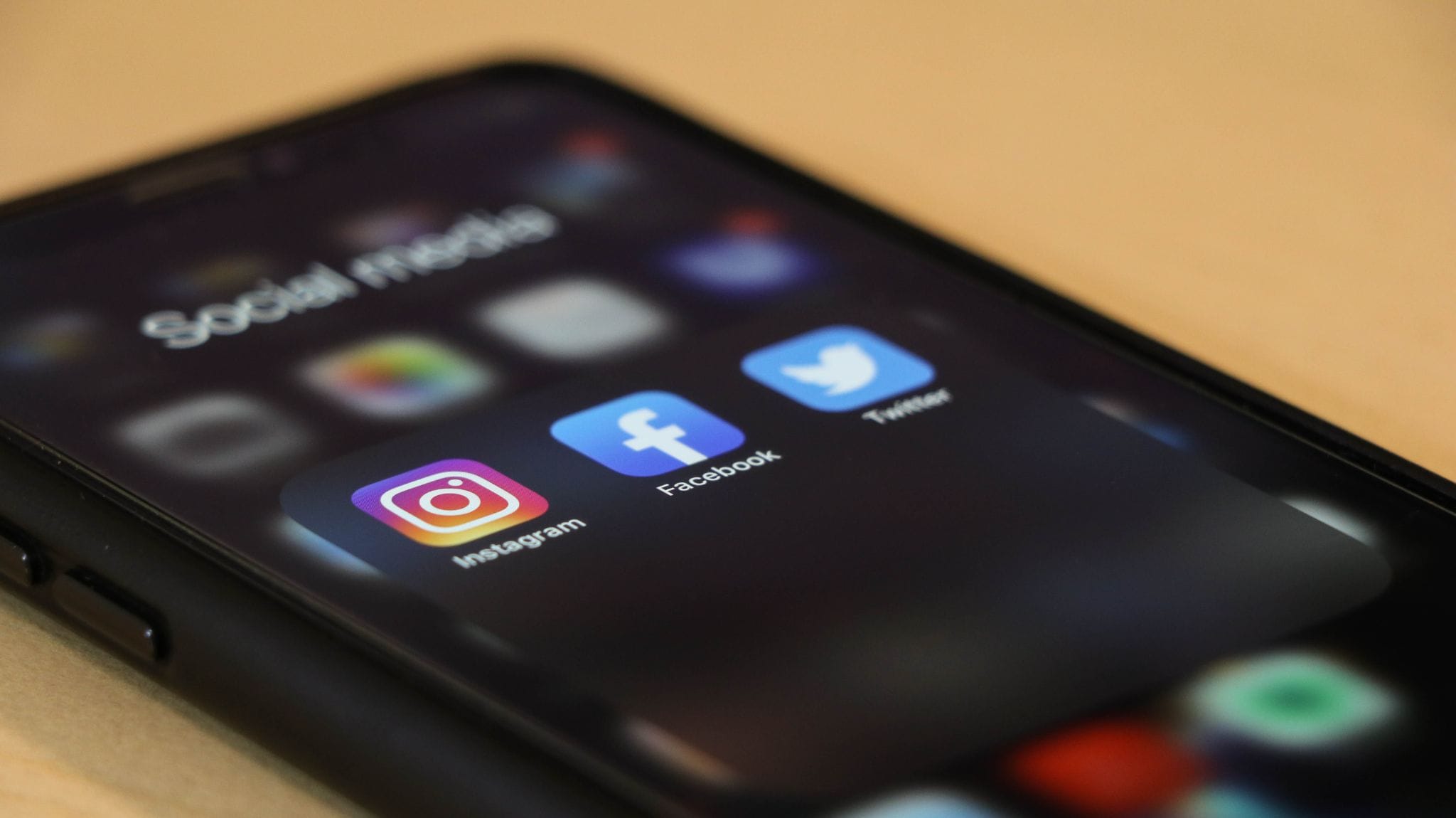
When you see harassment or misconduct happening either in person or online, intervene as an active bystander to support the person and deal with the situation.
- When it’s harassment or misconduct in person (e.g. at a party or conference or retreat) here are some things you can do:
- Change the topic or create a distraction and take the heat off the person being affected - e.g. interrupt and ask if they’re going to the upcoming talk or check if they want to go get a snack. Sometimes people find pretending to be the person’s friend to be a good strategy
- Ask another person to do something specific to help - e.g. ask a volunteer at the conference to take the harasser/aggressor aside
- (In some cases) Record the situation - if it seems like filming is going to be appropriate and useful
- Tell the harasser/aggressor directly their behaviour is not okay - this is only appropriate if you’re safe yourself and perhaps works extra well if you know the person. (See this video from the “Have a word” London advertising campaign, or this longer group chat from a Police Scotland campaign) You might find it useful to bear in mind the mantra “challenge the idea not the person”
- Take the harasser/aggressor aside afterwards for a quiet word to say it wasn’t okay - this could be less confrontational than intervening in the moment
- Check in afterwards with the person who’s been affected - to see how they feel and if there’s anything they want you to do
- Escalate / report to a relevant contact for the situation e.g. a community contact at EAG or a line manager at work (depending on the context you may want to ask the person in question’s permission before doing this)
- When it’s harassment online, many similar steps are still going to be useful (adapted for the medium)
- Flag or report harassing behaviour to moderators and encourage others publicly or privately to do the same
- Take screenshots if it seems like those would be useful later
- Comment in the online conversation or thread calling out bad behaviour, role-modelling an empathetic response, and/or challenging or fact-checking incorrect claims. I think that people probably underestimate just how much of a boost it can be to see someone “come out to bat” for you or someone else. If you feel able to do this, I’d encourage you to do this more!
- (If relevant) DM the harasser/aggressor about their behaviour - though I expect this is less often going to be relevant than the in person case
- Show public support for the person being targeted e.g. replying supportive things
- Send the personal being targeted supportive private messages checking in with how they are and seeing if you can help
Some resources I drew on for this: RAINN writes about active bystander intervention here, Right To Be (formerly Hollaback) has a 5Ds approach for public harassment here’s the webpage and here’s a pdf. Right To Be has some thoughts on online harassment here. Here’s a video about why this might be a particularly important approach for men to take.
Takeaways: When you see harmful or harassing behaviour happening interject as an active bystander- whether it's happening online or in person. Challenge the behaviour and/or look out for the person affected
6. Take action about people who have harmed others
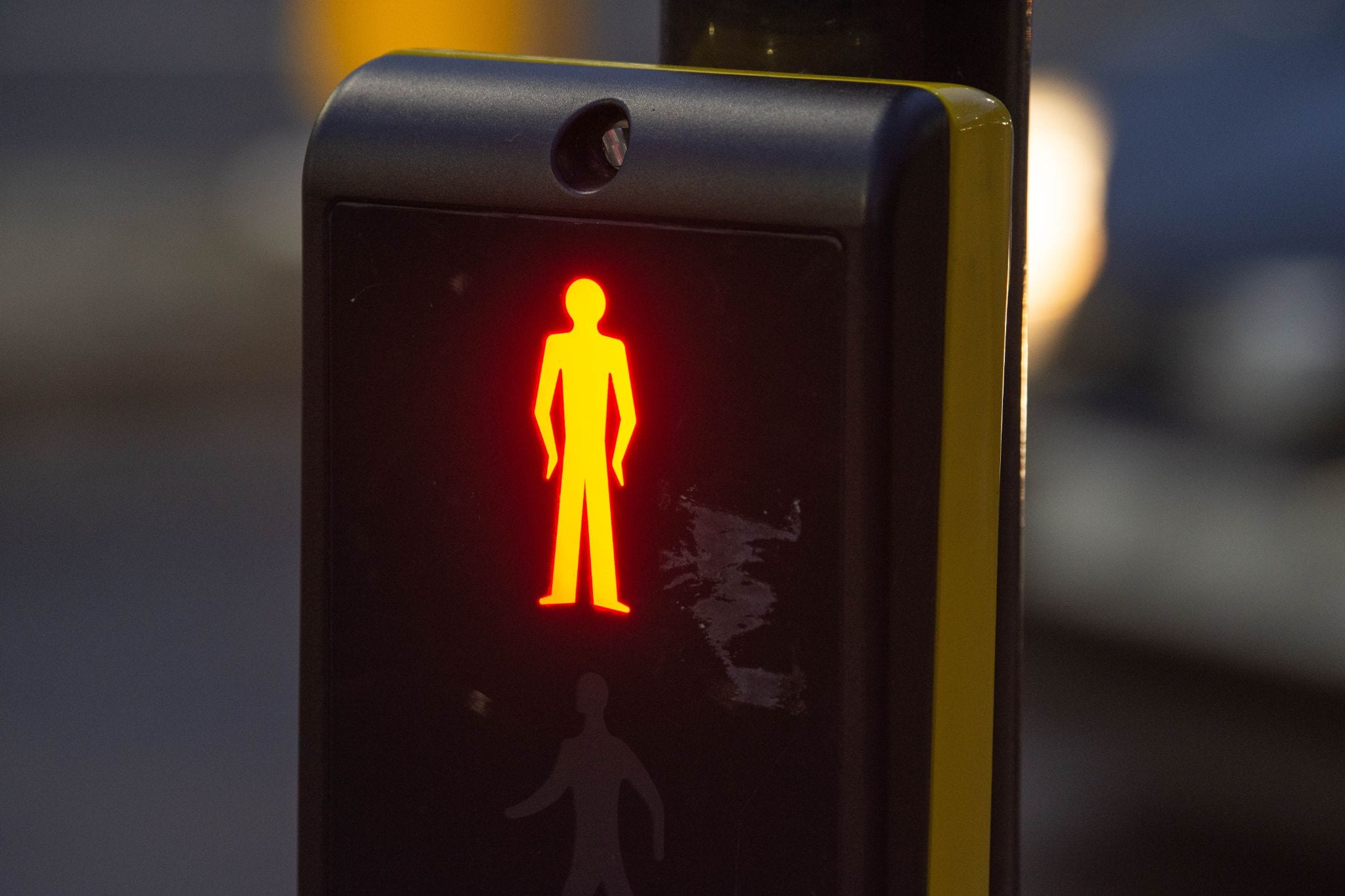
If there are people that you know, perhaps in the EA community, who you think have harmed others there are various steps you could take. The appropriateness of these for each situation is going to vary a lot and I certainly don’t feel like I know what the ideal equilibrium state for the community is. But I think I likely want to nudge people towards checking that they aren’t leaving this up to others - if there is something you’re aware of, maybe you are the person who should do something about it.
Potential steps could include:
- Talk to a friend or two to get another perspective
- Call a national hotline to received confidential support
- In the US you can use https://hotline.rainn.org/online or call 800.656.HOOE (4673)
- In the UK there are hotlines here https://www.nhs.uk/live-well/sexual-health/help-after-rape-and-sexual-assault/
- (If appropriate and handled sensitively) Check in with a person who might have been affected to see how they think about the situation
- (If appropriate and handled sensitively) Talk to the person who has carried out the behaviour about the issue and raising your concerns with them
- Report to CEA community health (can be anonymously)
- Talk to a line manager or reach out to a relevant organisational contact (if this is a work-related issue)
It is important to not judge someone unfairly or without considering the evidence, especially understanding their case. Social sanction is extremely painful for those who face it and sometimes, if people face consequences that seem too harsh, it can even disincentivise others in the community from coming forward with stories about the behaviour of people they care about.
But all that said, remember you are not CEA and even if someone’s behaviour does not rise to the level of requiring professional sanction (such as being banned from EA Global or similar) you still control your own social circle - you don’t have to be friends with jerks just because they are EAs.
When you are not acting on behalf of an organisation, which ought to have its own transparent and fair procedures, you are entirely allowed to do any of the following when relevant:
- Socially separate yourself from people - don’t invite them to parties, tell other people not to invite them to parties
- Unfollow them / mute / block them on social media - don’t read or share their stuff, don’t interact with them
- Tell other people about you reasons for doing that
Takeaways: Take responsibility for doing something about people you interact with who have harmed others, but handle this with care. Consult with friends / experts to work out what to do. Feel free to maintain your own distance even if behaviour isn’t harmful enough to face professional repercussions
7. Participate in the discussion

When there is discussion (especially online) about issues like sexual misconduct my impression is that it’s appreciated by people affected if you:
- Signal boost takes you agree with from affected communities (e.g. upvote or retweet posts or comments by women making points about their own experiences, if you have a blog give a guest spot to someone to write about the issue etc.)
- Provide your own comment about your own reaction, even if small.[7] (E.g. how you feel about it, what you’re doing about it, advice for other people)
- Take the time to engage with and pushback against takes from others that seem misguided or wrong, especially if they’re getting some traction.
On the second point, my anecdotal experience around recent events in EA were:
- a number of women that I knew (myself included) were feeling very horrified / shocked / shaken events in EA and somewhat fearful that EA leaders, friends, or colleagues might not be feeling similarly
- a number of men that I knew where horrified / shocked / shaken but felt some combination of a) anxiety about saying the wrong thing, b) nervousness about taking up space, c) hesitation about just offering words which seemed insubstantial / performative / just virtue signalling, and d) hesitation about having nothing novel or particularly insightful to say
I think these hesitations were totally understandable - in the wider world (particularly contemporary American culture) there is a strong emphasis on platforming those affected and a push that we need stronger deeds than just words. However, I think the discourse in EA isn’t that mature yet! That means the simply the way that the online discourse goes and whether "basic" stuff gets said, feels more important at this stage.
On the second and third points, remember that this can be a really tough topic emotionally for people who feel most affected by it. And it is a bad community dynamic to expect them to do all the work in explaining themselves, correcting misapprehensions or objecting to poor takes. If others who are less affected can take on part of the responsibility for discussing things well, that can be extremely valuable and appreciated.
My impression is therefore that even if it feels awkward to do, it’s still useful and valuable to people in the community if you share how you are feeling about issues and engage in the discussion - in part for the immediate emotional benefit and in part because the substance of the comment contributes to community norm-setting on the issue.
Takeaways: When there is community wide discussion about issues like sexual misconduct participate by signal boosting those affected and contributing your own takes
8. Contribute to or start community-wide initiatives

Thinking more substantially about what could be done in the wider community, there are some actions we can all take. I’ve brainstormed a few things below. I don’t know that all of these things are definitely good to do (particularly the ideas for new projects!) and you don’t have to try doing all of these overnight - pick something that seems good to you to start with.
Some of these are focused specifically on sexual misconduct, and some are about making the community more welcoming and supportive of women, non-binary and trans people in general - I’d guess that doing things in this space is also an important part of what we should do in EA.
Contribute to existing approaches:
- Sign up to be a Magnify Mentor, donate, or promote its activities (I should flag I’m on the board of Magnify)
- Contribute to CEA’s project of investigating the experience of women, non-binary and trans people in EA
- Signal boost other things focused on reaching underrepresented groups e.g. GPI’s Open student workshops or similar
Additional work within existing structures:
- Reach out and offer to help when you see people who seem to be working on this (e.g. even if just admin or proof-reading etc.)
- In a local EA group
- Volunteer to be a contact person people can go to in your local group with issues
- Start a reading or discussion group focused on learning about these issues with a view to learning what could make the EA community better
- Create events or discussion spaces that are particularly for women, nonbinary and trans people to create safe spaces
- Invite speakers to talk about this issue specifically (e.g. one can request a speaker from RAINN)
- Generally push for demographic diversity of speakers
- Review community health guidance for groups and improve or ask for the group to improve processes that are less strong
- At conferences / retreats / events
- Volunteer to be a point person people can go to with issues or make yourself generally available to people from underrepresented groups who are attending
- In your workplace (just a flavour of things that could be possible/good)
- Improve or push for improving policies around handling sexual harassment
- Improve or push for improving policies or norms around diversity in hiring
- Set up a reverse mentorship scheme
- Push more inclusive norms e.g. paying attention to the proportion of genders in meetings, how much they speak in meetings or get interrupted, who is asked to chair and who to take minutes etc.
New projects within the community someone could start:
- Create a volunteer network of people that people can confidentially reach out to as a first point of contact - to offer support, help them think through what to do, and encourage them to reach out to more official channels (e.g. if community health or a line manager seem too scary at first)
- Create a site / database for sexual harassment / misconduct resources for EA (comparable what the EA mental health navigator does for mental health resources)
- Research what evidence-backed interventions there are to reduce sexual misconduct and what success looks like in other communities and share that research within the community
- Create a reverse mentoring scheme across the community to help organisational leaders learn about issues facing more junior folks
- More top of funnel content or outreach to women, non-binary or trans people
- Create a working group of volunteers to focus on scoping out what could be done and starting work on some projects (e.g. compare how things like the Effective Institutions Project got started arising out of working grups)
Takeaways: contribute to existing projects in the EA space, take actions within your local EA group or workplace and consider starting up a new project that could make progress
9. Take additional personal actions

Beyond the EA community, you can also take a number of personal actions if you want to help with this issue.
For example, RAINN has a HEAL pledge in April 2023 for sexual assault awareness and prevention month. You could take the pledge and take actions as a result:
- I pledge to lend a hand in times of need, times of support, and in the healing journey from and after experiencing sexual violence and abuse online.
- I pledge, to the best of my ability, to have local and national resources at the ready.
- I pledge to educate myself and become more trauma-informed in my support of survivors.
- I pledge to advocate for survivors in my local organizations, on my college campus, and in my community of family, friends, and loved ones.
- I pledge to listen to survivors and to create safe spaces for dialogue.
- I pledge to acknowledge and respect that survivors’ have different lived experiences.
- I pledge to #HEALtogether, by your side, today and always.
You could also e.g.:
- Volunteer to staff a hotline (e.g. in the US for RAINN’s hotline) or in a refuge.
- Take political action (e.g. petitions for better handling of rape cases)
- Raise awareness or join campaigns on social media (e.g. Rape Crisis England and Wales’s campaigning work)
- Show support for people’s stories online or on platforms like Right to Be
Takeaways: take your own personal pledge to take action on this issue, donate, volunteer, or raise awareness
End note
And that's the end of the guide! I'm interested to see the comments (in particular as I'm curious to what extent this was useful)
With thanks to everyone who contributed thoughts or comments on the draft including AA, GP, HP, JB, JD, JH, NY, and TC. This post doesn't necessarily reflect all their views but I'm grateful for their help!
Appendix 1 - more about monopoly
Here’s a longer extract from the post by sociologist Allan G Johnston about Monopoly:
We can think of Monopoly as a social system. It has positions (players, banker), it has a material reality (the board, the pieces, the dice, play money, property deeds, houses and hotels), and it has ideas that connect all of this together in a set of relationships. There are values that define the point of the game—to win—and rules that spell out what’s allowed in pursuit of winning, including the idea of cheating. Notice that we can describe the game without saying anything about the personalities, intentions, attitudes, or other characteristics of the people who might play it. [...]
I don’t play Monopoly anymore, mostly because I don’t like the way I behave when I do. When I used to play Monopoly, I’d try to win, even against my children [...] It wasn’t because I have a greedy, mercenary personality, because I know that I don’t behave this way when I’m not playing Monopoly. Clearly I am capable of behaving this way as a human being, which is part of the explanation. But the rest of it comes down to the simple fact that I’d behave that way because winning is what the game of Monopoly is about.
When I participate in the Monopoly system, greedy behavior is presented to me as a path of least resistance, what you’re supposed to do if you want to feel that you belong. And when I play the game, I feel obliged to go by its rules and pursue the values it promotes. [...]
What happens when people participate in a social system depends on two things: the system and how it works, and what people actually do as they participate in it from one moment to the next. What people do depends in part on the position they occupy in relation to the system and other people in it […]
For its part, a system affects how we think, feel, and behave as participants. It does this through the general process of socialization, but also by laying out paths of least resistance in social situations. At any given moment, there are an almost infinite number of possible things we could do [....] While playing Monopoly... When someone I like lands on a property I own, I could tell them that I’ll give them a break and not collect the rent, but then collect it happily when someone I don’t like lands there.
But people would probably object that I wasn’t playing “fair” or by the rules. Since I’d rather people not be angry at me or kick me out of the game, it’s easier to go by the rules even when I’d rather not. And so I usually do, following the path of least resistance that’s presented to people who occupy the same position I occupy in that particular system. This is why people might laugh at racist or sexist jokes even when it makes them feel uncomfortable—because in that situation, to not laugh and risk being ostracized by everyone may make them feel more uncomfortable. The easiest—although not necessarily easy—choice is to go along. This doesn’t mean we must go along or that we will, only that if we go along we’ll run into less resistance than if we don’t.
He also talks about this in this video applying the analysis to white supremacy, and covers it in the book I recommend below The Gender Knot applying the analysis to patriarchy.
Appendix 2 - more resources
Very quick intro things
- Laura Bates has a short TED video about the project Everyday sexism she set up Everyday sexism | Laura Bates | TEDxOxford
- Rape crisis England & Wales has some pages on rape myths and rape culture
- RAINN has a collection of survivor stories
- Right to Be and Everyday sexism and the #metoo movement in general have collections of stories of harassment and sexual misconduct
Longer things:
- RAINN has some book recommendations
Wider resources for learning about patriarchy and feminism:
- The Gender Knot, Allan G Johnston - sociological discussion of patriarchy including the dynamics and systems that contribute to sexual harassment and assault.
- ^
And also just about timed for this post to just about still be within Sexual Assault Awareness Month
- ^
The UK rape crisis centre estimates that 1 in 4 women and 1 in 18 men have been raped or sexually assaulted as an adult. For the US RAINN estimates 1 in 6 women and 1 in 33 men have experienced an attempted or completed rape.
- ^
For the last year I’ve been doing a ~monthly feminist book club with some friends and it’s been great for both those reasons
- ^
If you’re interacting as a friend and aren’t under any other professional or legal obligations
- ^
It’s hard to say this in a way that won’t cause undue anxiety for people who are ultra-scrupulous. I’m going to try and speak to the people who might find it most valuable to hear this message. Don’t assume you’ve done something terrible just because e.g. you’re a straight guy, but don’t assume you haven’t either. If you’re angsting, get a sanity check from a trusted friend.
- ^
Adopting a growth mindset in thinking about one’s ability to grow and change can be an additional helpful frame here.
- ^
I tweeted about this here in February 2023

Thank you so much Habiba, especially and as you mentioned women probably should not do the heavy lifting on issues around sexual misconduct. I want to take the opportunity for especially men to reach out to me if they want to talk about these issues. I am especially keen to hear from men who have mixed feelings about recent events in EA. The reason for me doing this is so that I can hopefully do something useful to improve the situation in our community. But before I do any "fixing", I want to understand what I am stepping into and what I am attempting to fix.
I should perhaps also mention that my previous self was no angel when it came to the treatment of women, so I think I am especially good at listening to men who have conflicted feelings (but I should say that I think I have made progress on becoming a better person - I aspire to be an ally).
Thanks so much for making this offer Ulrik! I think it is really helpful for there to be a range of folks that people can reach out to :)
Thank you so much for taking the time to write this up, Habiba!
I just want to call out what I felt was one of the most valuable parts of this post for me with respect to online conversations:
> a number of men that I knew where horrified / shocked / shaken but felt some combination of a) anxiety about saying the wrong thing, b) nervousness about taking up space, c) hesitation about just offering words which seemed insubstantial / performative / just virtue signalling, and d) hesitation about having nothing novel or particularly insightful to say
> I think these hesitations were totally understandable - in the wider world (particularly contemporary American culture) there is a strong emphasis on platforming those affected and a push that we need stronger deeds than just words. However, I think the discourse in EA isn’t that mature yet! That means the simply the way that the online discourse goes and whether "basic" stuff gets said, feels more important at this stage.